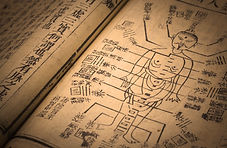Frequently Asked Questions


What Do Acupuncturists Do?
In addition to asking questions, the acupuncturist may want to take your pulse at several points along the wrist and look at the shape, color, and coating of your tongue.
The acupuncturist may also look at the color and texture of your skin, your posture, and other physical characteristics that offer clues to your health.
You will lie down on a padded examining table, and the acupuncturist will insert the needles, twirling or gently jiggling each as it goes in.
You may not feel the needles at all, or you may feel a twitch or a quick twinge of pain that disappears when the needle is completely inserted.
Once the needles are all in place, you rest for 15 to 20 minutes. During this time, you'll probably feel relaxed and sleepy and may even doze off. At the end of the session, the acupuncturist quickly and painlessly removes the needles.
For certain conditions, acupuncture is more effective when the needles are heated using a technique known as "moxibustion." The acupuncturist lights the dried herb moxa (mugwort) and holds it above the needles. The herb, which burns slowly and gives off a little smoke and a pleasant, incense-like smell, never touches the body.
Another variation is electrical acupuncture. This technique consists of hooking up electrical wires to the needles and running a weak current through them. In this procedure, you may feel a mild tingling, or nothing at all.
How Many Treatments Do I Need?
The number of acupuncture treatments you need depends on the complexity of your illness, whether it's a chronic or recent condition, and your general health. For example, you may need only one treatment for a recent wrist sprain, while a long-standing, chronic illness may require treatments once or twice a week for several months to achieve good results.
What Is Acupuncture Good For?
Acupuncture is particularly effective for pain relief and for post-surgery and chemotherapy-associated nausea and vomiting. In addition, both the World Health Organization and the National Institutes of Health recognize that acupuncture can be a helpful part of a treatment plan for many illnesses.
A partial list includes: addiction (such as alcoholism), asthma, bronchitis, carpal tunnel syndrome, constipation, diarrhea, facial tics, fibromyalgia, headaches, irregular periods, low back pain, menopausal symptoms, menstrual cramps, osteoarthritis, sinusitis, spastic colon (often called irritable bowel syndrome), stroke rehabilitation, tendinitis, tennis elbow, and urinary problems such as incontinence.
You can safely combine acupuncture with prescription drugs and other conventional treatments, but it is important for your - Doctor to be aware of and monitor how your acupuncture treatment may be affecting your conventional therapies.
